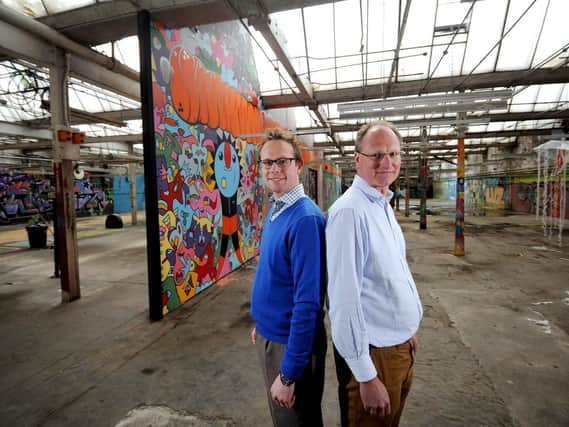Bringing Yorkshire's disused mills back to life could create 27,000 homes - John Gaunt


From the late 18th century onwards, they drove forward the industrial revolution.
They triggered technical innovation, stimulated new trade and transformed the transport network.
Advertisement
Hide AdAdvertisement
Hide AdSilk, cotton and woollen production shaped the landscape, economy and communities of West Yorkshire, Greater Manchester and Lancashire.
However, with the 20th century decline in national textile manufacturing, many of these monumental and iconic buildings face uncertain futures.
England’s textile mills, once the workshop of the world, were the original Northern Powerhouse.
They’re fundamental to the history, culture and future landscape of northern England.
Sadly, the North’s historic mills are rapidly disappearing.
Advertisement
Hide AdAdvertisement
Hide AdMany more stand empty and neglected. Forty five per cent of West Yorkshire historic mills have been lost since the 1980s, while there have been over 100 fires at historic mills in Bradford alone since 2010. But these distinctive, character-filled places can accommodate wonderful homes, workplaces and cultural spaces.
Our historic mill buildings not only offer a tangible link to the past but have the potential to be at the centre of local communities in the future.
This has been recognised by Historic England, who engaged Cushman & Wakefield and Lathams Architects to review and develop best practice in the regeneration of textile mills in the Engines of Prosperity report in 2016.
This report highlighted the opportunity for vacant and under-used mills in the regions to act as a stimulus for regeneration activity and to contribute to growth in the local economy and it praised those mills who were already doing exactly that.
Advertisement
Hide AdAdvertisement
Hide AdFollowing on from this, I was honoured to be asked to speak at a Mills Development Conference at Dean Clough Mills in Halifax and to explain what we have achieved at Sunny Bank Mills, our family textile mill at Farsley, and how we have achieved it.
I relished the chance to talk about our award-winning mill and how it has breathed life back into the heart of Farsley, creating more than 350 jobs, providing a stimulating base for over 70 companies and nourishing a fast-growing artistic community. It’s been a very rewarding journey.
It is vital, however, not to underestimate the size of both the challenges – and the opportunities – that lie ahead for the owners of West Yorkshire’s mills.
There are 1,350 mills underused or vacant in the county, which have the potential to create thousands of jobs, 27,000 homes and much, much more. Successful regeneration all starts from having a passion for the buildings and the community within which they sit. This gives you that edge to look longer and harder at the issues from all the angles. You need a clear vision of what you want to achieve.
Advertisement
Hide AdAdvertisement
Hide AdNow our mill complex is thriving and is currently home to a highly-regarded art gallery, creative businesses, quality office space and number of independent shops, restaurants and cafes.
Community involvement has been invaluable to the success of our regeneration.
In my speech at the conference, I issued a call to action. Many of these mills won’t be here in 30 years’ time, if they are allowed to continue to decline. So time is absolutely of the essence.
Public sector cooperation is also crucial and we have worked closely – and productively – with Leeds City Council.
Advertisement
Hide AdAdvertisement
Hide AdIn this context, it was reassuring to hear Trevor Mitchell of Historic England, who worked on the Engines of Prosperity report, say: “I think if there’s one thing that the campaign and the study has shown me, is that I’ve not met a local authority or public sector partner that didn’t agree that they liked this stuff.”
So let’s end on an optimistic note.
There is hope – and a future – for West Yorkshire’s iconic mills. We are proud to have played a role in outlining and illustrating what that future could look like.
John Gaunt is joint managing director of Sunny Bank Mills
Comment Guidelines
National World encourages reader discussion on our stories. User feedback, insights and back-and-forth exchanges add a rich layer of context to reporting. Please review our Community Guidelines before commenting.